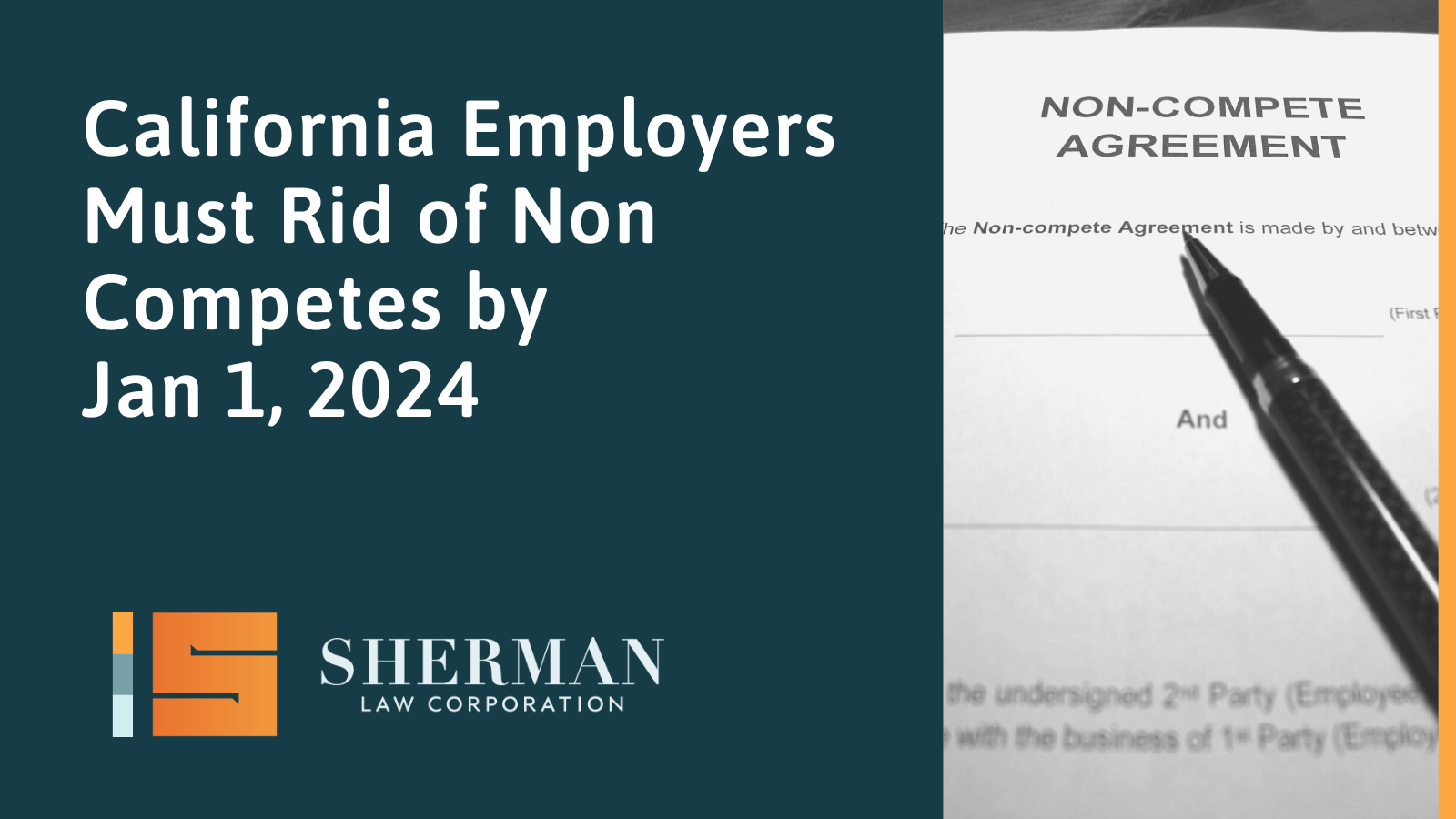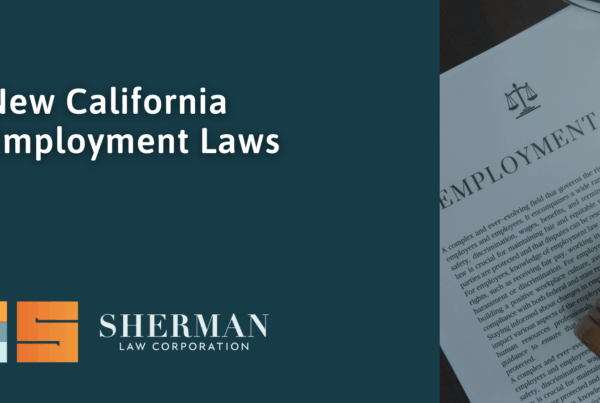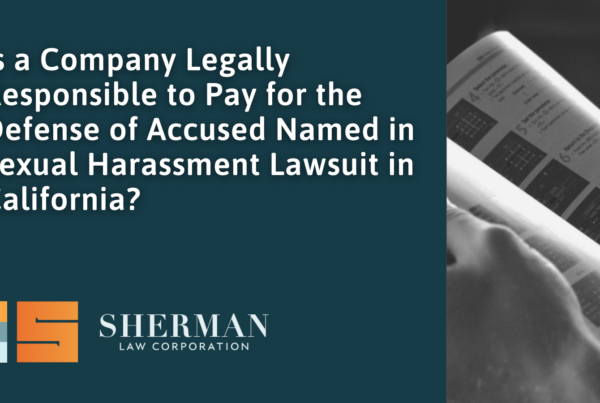
Employers who require employees to sign noncompetition agreements or other restrictive covenants or seek to enforce the agreements — even when employees enter into the agreements outside California in a state where the restrictions are lawful — risk liability under a new California law that will become effective January 1, 2024.
Senate Bill 699, signed by Governor Newsom, also permits employees and former employees who sue to invalidate such restrictions to recover damage awards and attorney’s fees against the employer.
From experienced California employment lawyer Lisa Sherman, here’s what employers need to know about the new law.
SB 699 Voids Restrictive Covenants Entered into Within and Outside of California
California Business & Professions Code section 16600 declared void “every contract by which anyone is restrained from engaging in a lawful profession, trade, or business of any kind.”
Consequently, restrictive covenants (employer-drafted contracts that bar employees, once their employment ends, from competing with their former employer or from soliciting customers or employees to leave the employer) have been challenged in California.
However, where employees entered into such restrictions outside of California and in a state where the restrictions are enforceable, California courts have shied away from ruling them invalid.
Those circumstances arise, for example, when an employee signs an employer’s restrictive covenants while working in, say, Texas, then quits and moves to California to work for a competitor, and sues in California to invalidate the former employer’s restrictions.
In such situations, courts in California declined to invalidate restrictions out of respect for the laws of another state (or when the court finds the other state’s interest in the matter to be greater than California’s interest.)
Under newly enacted SB 699, respect for the law of other states is apparently no longer in California.
The bill, which enacts Business & Professions Code section 16600.5, declares that restrictive covenants are “unenforceable regardless of where and when the contract was signed,” unless the agreement is within one of a few exceptions already recognized under California law.
Taking aim at employers, the law prohibits employers entering into, and from attempting to enforce, such agreements “regardless of whether the contract was signed and the employment was maintained outside of California.”
Section 16600.5 prohibits restrictive covenants regardless of where they are entered into. That said, questions remain.
- Do California courts have authority to rule void in all circumstances such restrictions that were lawfully entered into in other states?
- Does the Full Faith and Credit clause set out in Article IV, Section 1, of the U.S. Constitution limit the reach of section 16600.5?
- Where the court of another state has already ruled the parties’ restrictive covenants to be enforceable, does a California court have authority to then rule otherwise?
These questions will require the courts to weigh in.
SB 699 Gives Employees and Former Employees Greater Remedies
Before section 16600.5, individuals suing in California to invalidate restrictive covenants had no basis to recover damage awards or attorney’s fees.
Section 16600.5 authorizes employees, former employees, and applicants to recover damage awards, injunctive relief, and attorney’s fees and costs against their employers when they prevail in invalidating restrictive covenants, regardless of whether the restrictive covenants were entered into within or outside California.
California Employer Takeaways
With the potential the new law brings to recover damages and fees awards, Section 16600.5 boosts the motivation of employees, former employees, applicants, and plaintiffs’ attorneys to sue over restrictive covenants and increases the exposure in dollars for employers who are sued.
Additionally, the new law will not end the familiar race between the employee rushing into court in California to invalidate restrictive covenants and the employer sprinting to court in its home state for a ruling enforcing the covenants. If anything, the out-of-state employer will now move more quickly than before in the hopes of obtaining a favorable ruling before the employee obtains a ruling in California.
Finally, the new law does not require potential plaintiffs, before suing, to ask employers to withdraw restrictive covenants. Given those facts, consider giving notice in a proactive manner to at least some current or former employees now located in California that your organization will not enforce the restrictive covenants within California or withdraw such covenants.
That step may have value in pulling the rug out from beneath potentially litigious individuals before they file suit.
Contact Sherman Law Corporation Today
For more information on restrictive covenants, feel free to contact Sherman Law Corporation at (323)488-2087 or Lisa@sherm-law.com.




